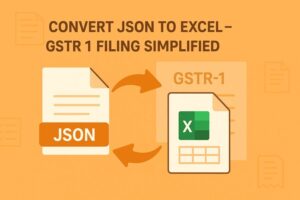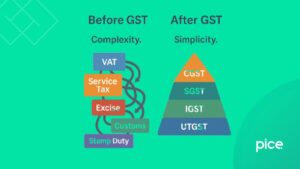The Impact of GST on Sale and Purchase of Land in India
- 16 Apr 25
- 10 mins
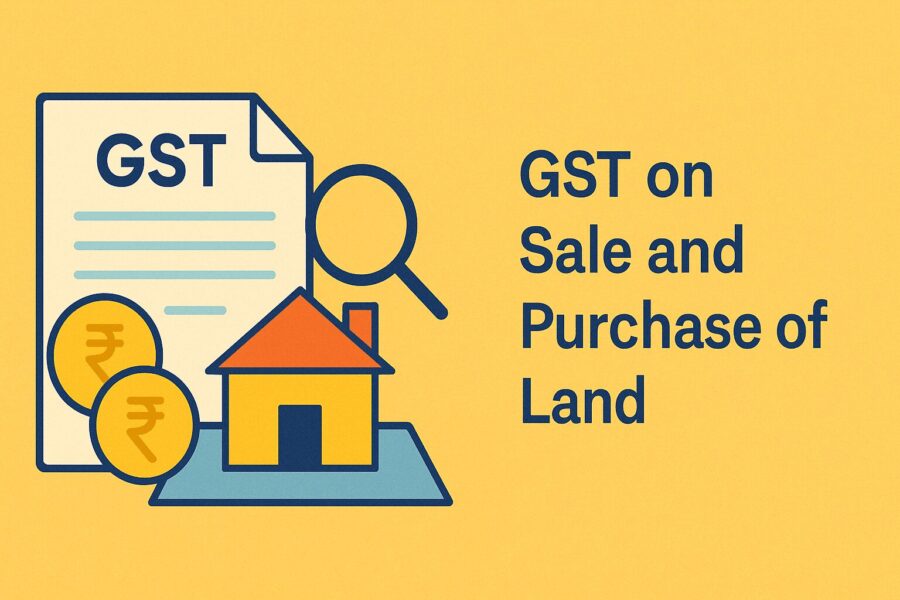
The Impact of GST on Sale and Purchase of Land in India
Key Takeaways
- GST is not applicable on the sale of vacant land, but it applies when construction services are involved.
- Under-construction residential properties attract GST, while completed ones are exempt.
- Input Tax Credit (ITC) benefits are available for commercial buyers but not for residential property purchases.
- GST ensures transparency in real estate transactions by clearly separating construction service taxes.
- Stamp duty applies to land ownership transfer, while GST applies only to construction-related services.
People usually view land buying and selling transactions as basic transfers of land ownership. However, there are multiple tax implications in today's landscape. The present-day taxation system makes land transactions particularly complicated within real estate sector transactions.
The implementation of Goods and Services Tax (GST) has made land transactions more elaborate because of diverse tax considerations. However, land sale and purchase transactions remain unclear to both buyers and sellers especially when development and construction activities are present.
This blog provides complete information about GST on the sale and purchase of land and other associated details that you need to know.
What Is GST?
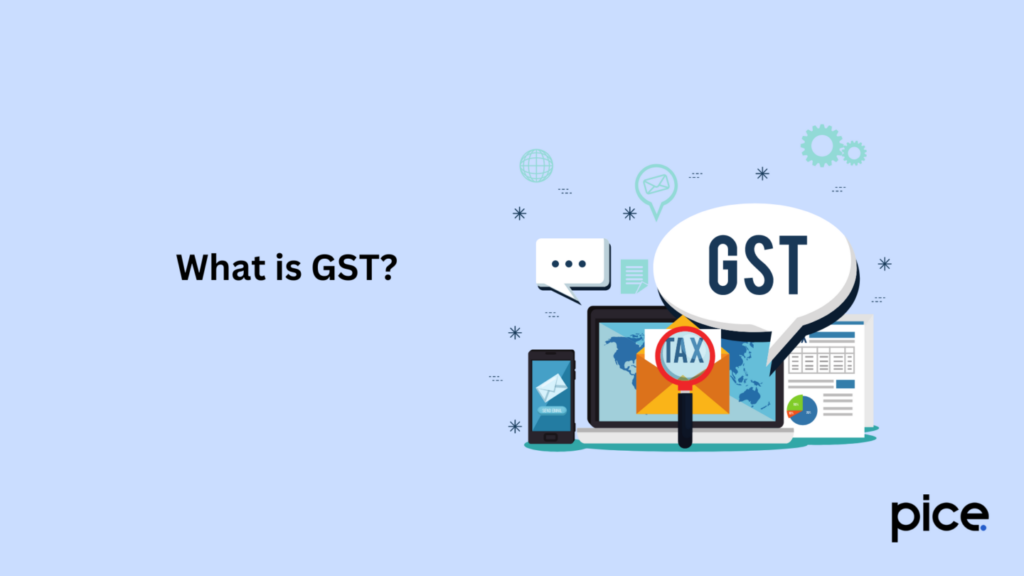
The Goods and Services Tax (GST) operates as a unified taxation system which creates a streamlined tax framework throughout India. The new tax system eliminated various existing taxes, including VAT, service tax and excise duties through its unified structure. GST affects the supply of services and goods and it also taxes the construction services that come with land deals when development is present in the transaction.
The major benefit of GST emerges from its Input Tax Credit (ITC) mechanism which enables businesses to reclaim taxes paid on their inputs, thus lowering their total tax liability. This is especially beneficial in the real estate sector, where several services such as construction and development are involved.
GST on Sale and Purchase of Land: An Overview
Now that we have a basic idea of what GST is, let’s look at how it applies to land transactions. Generally, GST on the sale and purchase of land does not apply when the land being sold is vacant land or plots of land with no associated construction. Land is considered immovable property and the sale of such land is typically exempt from GST.
However, the situation changes when the sale involves construction services or the development of land. The transaction qualifies as a composite supply that combines land and construction services, thus subjecting the construction service applicable to GST taxation. The buyer must pay GST for all construction services used during land development.
Sale of Land with Construction Properties
One of the most common scenarios where GST on sale and purchase of land applies is when land is sold with construction properties or as part of a residential real estate project. A real estate developer selling residential flats on developed land with construction services must pay GST for the construction services.
This is called composite supply. Under composite supply conditions, the transaction includes simultaneous goods supply (supply of land) and service supply (construction). The construction services become subject to GST taxation when this situation occurs.
Sale of Land Without Construction
The GST on the sale and purchase of land does not apply when you buy vacant land that has no construction. The land in its natural state remains out of GST taxation because it holds an exemption status. The purchase of bare land without any construction work does not require any GST obligations for the buyer.
However, the rules regarding GST on land transactions differ when the land is sold through development plans or when development has already taken place. When developers provide land levelling services along with water lines, drainage lines, electricity lines, etc., to develop land- they must charge GST to the buyer for those specific services.
Under a Joint Development Agreement (JDA) where land owner share developed property ownership, the construction portion may incur GST tax since developers provide construction services.
GST Rates and Calculations on Land Purchase
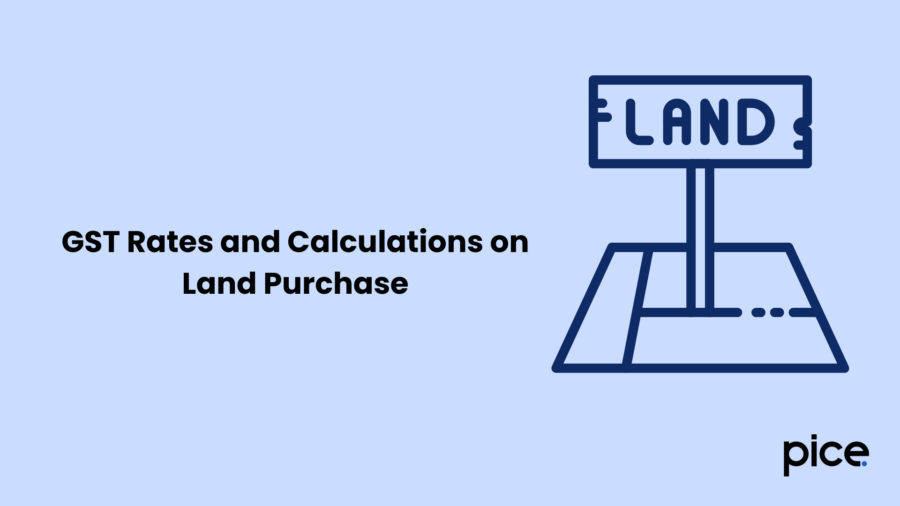
The calculation of GST rates for land transactions requires knowledge about how these rates work on different property types:
- Residential Properties
While completed properties are exempt from GST, under-construction flats are subject to a single rate of 12%. However, if the builder does not claim the input tax credit (ITC), the tax rates have been lowered from 8% to 1% for affordable homes and 12% to 5% for non-affordable homes.
The applicable rate of GST is 18% when a works contract service is rendered to develop a piece of land. In addition to the indirect taxes, stamp duty and registration fees are still applicable.
- Commercial Properties
The GST rate applicable on commercial properties is typically 12%. However, commercial apartments within residential projects are applicable for a GST rate of 5%.
Note: The GST rate is charged on the construction services, which include all aspects of building the property—materials, labour and other services related to the construction of residential properties. If a buyer is purchasing a flat as part of a real estate project, they will pay GST on the construction cost, not on the land.
Calculating GST on Land Purchase
Understanding how to accurately compute GST on a property acquisition is essential for legal compliance. Let's explore the steps to calculate GST without any delay.
Step 1: Identify Property Category
Start by classifying the property as either affordable housing or non-affordable housing. The GST rate structure establishes different rates between non-affordable housing and affordable housing properties.
Step 2: Assess Property Value
After determining the property type, begin evaluating its market value. The total property value requires a complete assessment that includes the base price together with parking fees, preferred location charges and other related expenses.
Step 3: GST Calculation
Apply the GST rate to the total property value for the GST calculation process. The GST tax applies to every square foot area included in the purchased property. The GST calculation for affordable housing properties at ₹3,500 per square foot amounts to ₹35 whereas non-affordable housing properties will incur ₹280 GST.
Step 4: Input Tax Credit
Homeowners need to check whether their builder has incorporated Input Tax Credit (ITC) benefits into their property purchase. The reduction of overall GST obligation depends on this information being verified.
Impact of GST on Land Buyers
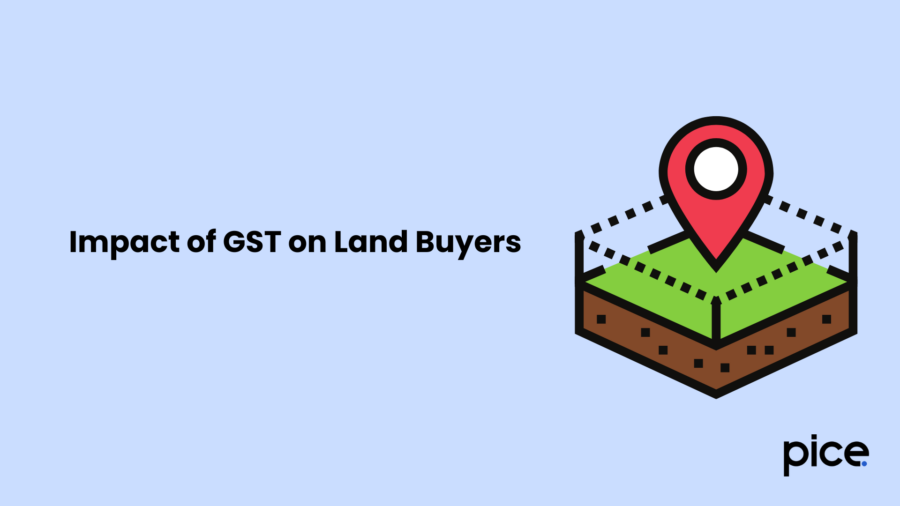
The implementation of GST on sale and purchase of land has various implications for both buyers and developers. Here are some key points to consider:
1. Increased Costs for Under-Construction Properties
Buyers must pay GST on sale and purchase of land when they acquire properties that include construction services in real estate projects or construction properties. The property becomes more expensive to buyers because of this addition. GST’s impact on property transactions becomes minimal when the construction reaches its final phase or when the property has been fully built.
2. Input Tax Credit
The Input Tax Credit stands as a fundamental characteristic of GST. Businesses can use GST paid on their input purchases like construction services to reduce their future tax obligations. Commercial property buyers together with business owners who acquire developed land can benefit from substantial tax savings through Input Tax Credit. ITC benefits commercial property buyers while it does not apply to residential property purchases.
3. Increased Transparency
The implementation of GST has brought increased transparency to the real estate sector. The construction services now have GST billed separately which enables buyers to see the exact tax amount they pay. The transparent tax system enables buyers to understand their costs better while ensuring proper tax documentation.
4. Informed Decisions on Land Purchases
Knowledge about GST taxation rules in land transactions helps buyers make more informed decisions when purchasing land. Property buyers can determine their complete purchase costs through the combination of GST rates and an understanding of construction services.
GST vs Stamp Duty: Key Differences
The taxation system for land transactions consists of GST on sale and purchase of land and stamp duty but they have different purposes. The construction services fall under GST taxation but stamp duty entirely applies to transfer of ownership. The following comparison examines the distinct characteristics of these two taxation methods:
| Point of Difference | Stamp Duty | GST |
| Applicability | All kinds of property transactions including lease agreements and sale deeds | Under construction properties, construction services |
| Tax Nature | State-level tax on documents | Indirect tax on services/goods |
| Rate Calculation | Varies across different states, each state having a fixed rate | Varies depending on type of the property |
| Purpose | Legal validation and state government’s revenue generation | Simplified indirect taxes |
Conclusion
The implementation of GST on the sale and purchase of land brought both simplicity and complexity to the real estate property market. The GST law exempts land from taxation but applies to construction services during land development. Buyers need to determine the nature of their transaction between vacant land and developed land or residential properties because GST will only apply to construction services.
Staying informed about GST regulations for land transactions and their distinctions from stamp duty allows property buyers to make better decisions regarding residential and commercial land purchases. Nevertheless, make sure to seek advice from real estate developers or professional advisors before making decisions to stay informed about tax compliance requirements.
💡If you want to streamline your payment and make GST payments via credit or debit card or UPI, consider using the PICE App. Explore the PICE App today and take your business to new heights.
 By
By 










